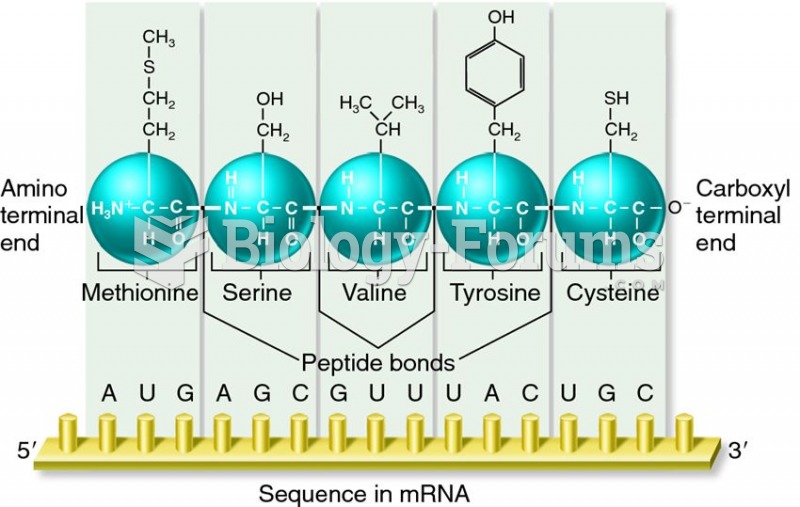|
|
|
Thyroid conditions cause a higher risk of fibromyalgia and chronic fatigue syndrome.
After a vasectomy, it takes about 12 ejaculations to clear out sperm that were already beyond the blocked area.
The most dangerous mercury compound, dimethyl mercury, is so toxic that even a few microliters spilled on the skin can cause death. Mercury has been shown to accumulate in higher amounts in the following types of fish than other types: swordfish, shark, mackerel, tilefish, crab, and tuna.
Fatal fungal infections may be able to resist newer antifungal drugs. Globally, fungal infections are often fatal due to the lack of access to multiple antifungals, which may be required to be utilized in combination. Single antifungals may not be enough to stop a fungal infection from causing the death of a patient.
Cancer has been around as long as humankind, but only in the second half of the twentieth century did the number of cancer cases explode.







